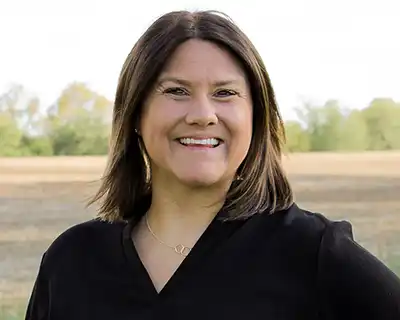Understanding farmers’ perspectives, motivations and values can help accelerate the data sharing needed to quantify and scale climate-smart agriculture in the U.S.
As more points in the value chain seek production data, it’s still unclear to producers what information is needed, who benefits and who is willing to share the cost of collecting and reporting. Providing greater clarity to these questions and helping producers align data sharing with broader values and motivations is critical to reach scale and allow more producers to benefit from opportunities in the climate-smart economy.
A panel of experts at this year’s Trust In Food Symposium used the recently released “Understanding Farmer Perspectives on Data” report as the backdrop to discuss how downstream buyers can support farmers and how to help more production data move through the value chain.
A crowded field means opportunity and confusion for farmers
While the momentum behind tracking greenhouse gas emissions across the supply chain has been building steadily for about three to five years, it’s recently gained traction, said Bayer’s Josh VanDeWalle, panelist and Midwest Row Crop Collaborative member.
“A lot of CPG companies, grocery retailers, multinationals, such as Bayer, have made significant commitments in the sustainability space,” VanDeWalle said. “There’s a lot of noise out there, [but] what that does is, actually, create a lot of opportunity.”
But opportunity doesn’t equal clarity, and farmers are unsure about how different programs compare, from carbon to climate-smart, and how they can evaluate the criteria and opportunities in each.
“They’re being asked for more information all the time. And they’re not sure if the value is there for sharing that information. Should they share that information? What information should they collect? And what does this even look like in their operations?” said VanDeWalle.
Answer three crucial questions before reaching out
Though a simple notion, accurately quantifying sustainability metrics across a fast moving, complex food value chain takes the buy-in and participation of a diverse team of supply chain partners. Each of which plays a part in producing, packaging and transporting a food commodity from seed to shelf.
At The Sustainability Consortium, CEO Christy Melhart Slay and her team collaborate with retailers, consumer packaged goods companies, NGOs, academia and other stakeholders across the food value chain to share insight and research into how farmers think about collecting sustainability data.
In a recent report produced in collaboration with Trust In Food, “Understanding Farmer Perspectives on Data”, hog farmers and row crop producers shared their perspectives on tracking and reporting data. The research sheds light on the barriers and opportunities to encourage on-farm data sharing and ways to meet the needs of producers.
Before reaching out to a farmer for their piece of the data puzzle, Slay urges sustainability leaders to first take stock. According to Slay, the first step to obtaining metrics and valuable data is to thoughtfully consider how to communicate the ask and intent.
“We saw that there is a willingness to share information with hog producers. It was about 50% with row crop producers,” said Slay. “About 40% said, ‘I’m willing to share my sustainability or conservation information if conditions are met.’ And those conditions fell into three buckets.
“One bucket was, ‘I want to know how my data is being used.’ It’s a fair question, to me, that speaks volumes,” she said.
From Slay’s perspective, producers are communicating a simple request—to know what stakeholders are doing with the information they are sharing.
“The second bucket is, ‘I want access to markets. If I am sharing this data, I want to know that the effort that I am undertaking is opening up some market channels for me,’” Slay continued. “And the third is, producers want compensation. So again, ‘if I’m going to the expense and the time to collect this information, I want to know maybe even beyond market opportunities that there’s some kind of compensation for that data.’”
Big picture: It boils down to trust
A common thread consistent across previous report findings was that, overall, the majority of producers are willing to share data, Slay said. Broadly, it comes down to addressing three key conditions to assure and motivate a producer to share their on-farm data.
“We hear about the sticky notebooks in the glove box of the cab, but really the data is being gathered. There is a hassle factor of converting it. But really, it’s these other kinds of conditions,” said Amy Skoczlas Cole, President of Trust In Food.
It comes down to trusting someone else with sensitive on-farm production data.
“Do I trust how [the data is] going to be used? And do I think that there is value in using it?” she said.
Learn more and download the report, “Farmer Perspectives On Data 2024: Barriers And Opportunities to More Robust Feed Sustainability Data In U.S. Pork Supply Chains” at Trust In Food.


